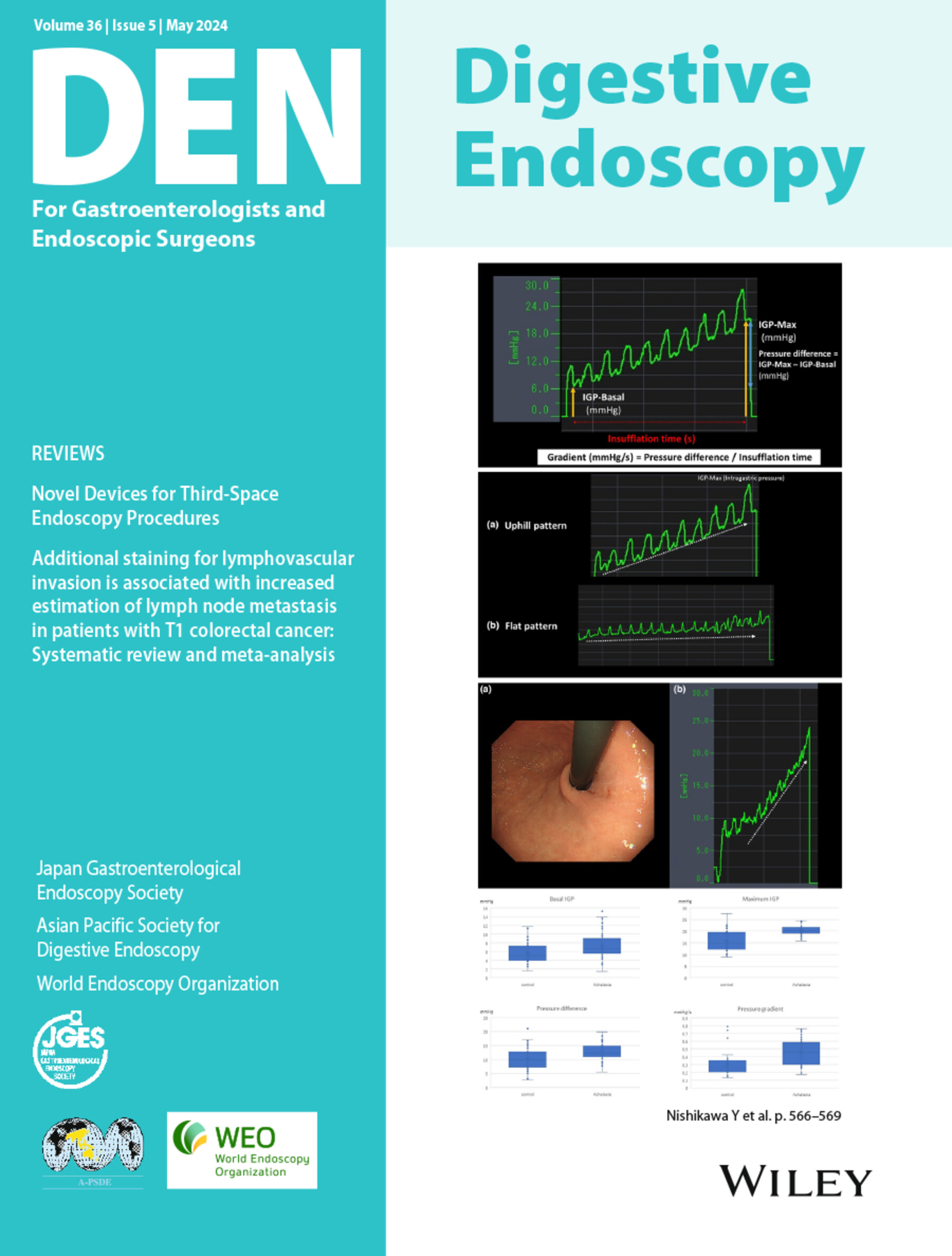Single-session endoscopic ultrasound-directed transgastric endoscopic retrograde cholangiopancreatography with a dedicated over-the-scope fixation device: Feasibility study (with video)
Abstract
Objectives
Endoscopic ultrasound-directed transgastric endoscopic retrograde cholangiopancreatography (ERCP; EDGE) is proposed as a less invasive alternative to laparoscopy-assisted ERCP. However, postponing ERCP for 1–2 weeks to reduce the risk of lumen-apposing metal stent (LAMS) migration may not be practical in urgent cases such as cholangitis, leading to increased procedural burden. This study aimed to assess the feasibility and safety of a single-session EDGE utilizing a dedicated over-the-scope fixation device.
Methods
A retrospective analysis of prospectively collected data from three referral centers was performed, including consecutive single-session EDGE procedures with the Stentfix device, utilizing only 20 × 10 mm LAMS. The primary outcome was LAMS migration, and key secondary outcomes included adverse events and technical success.
Results
Twenty patients (mean age 59 [standard deviation (SD) ± 11.3] years, 65.0% female) with a predominantly classic Roux-en-Y gastric bypass history (90.0%, mini-bypass 10.0%) underwent ERCP for indications such as common bile duct stones (60.0%), cholangitis (25.0%), or biliary pancreatitis (15.0%). No LAMS migration occurred, and technical success was achieved in 95.0%. Over a median follow-up of 102 days (interquartile range [IQR] 24.8–182), two adverse events were reported (10.0%), comprising postprocedural pain (grade I) and post-ERCP pancreatitis (grade II).
Conclusion
While acknowledging potential contributions from LAMS orientation and stent caliber, our data suggest that utilizing a dedicated over-the-scope stent fixation device may effectively prevent LAMS migration during single-session EDGE without the need for endoscopic suturing.

 求助内容:
求助内容: 应助结果提醒方式:
应助结果提醒方式:


